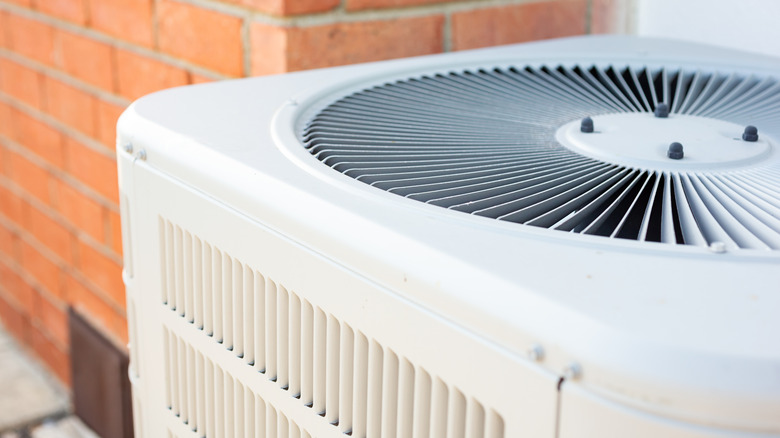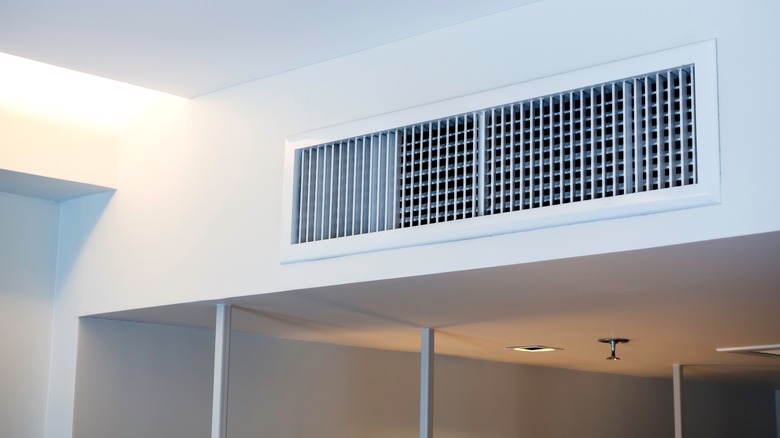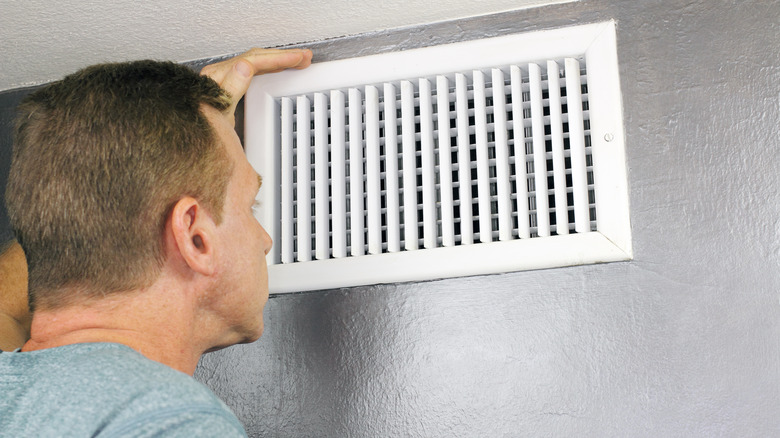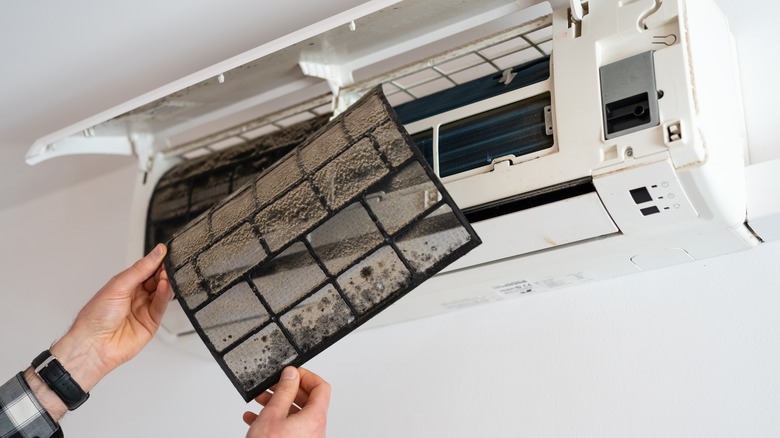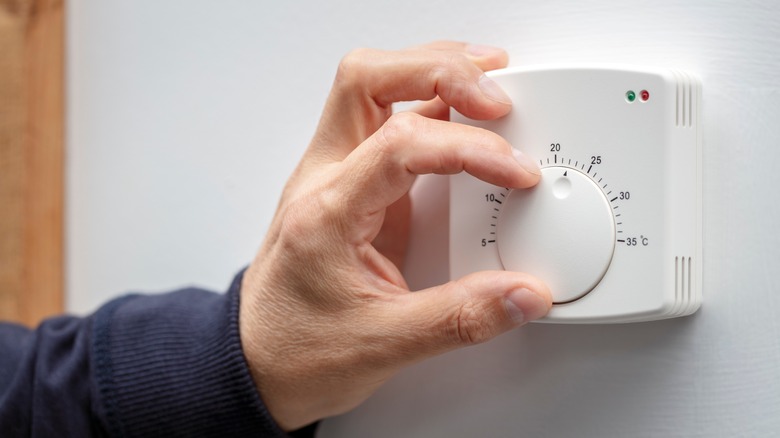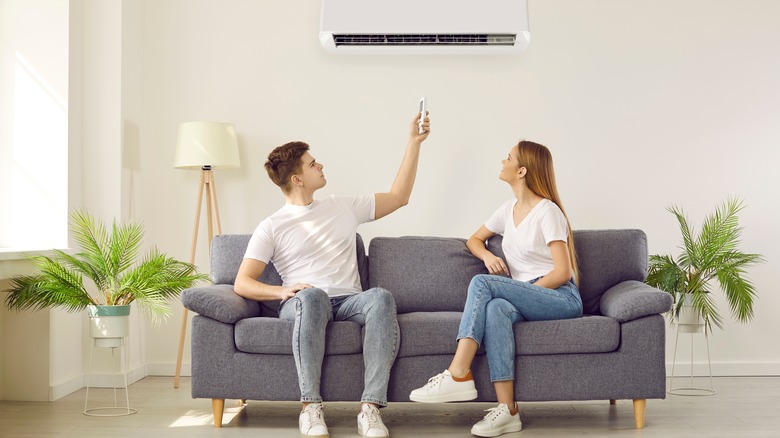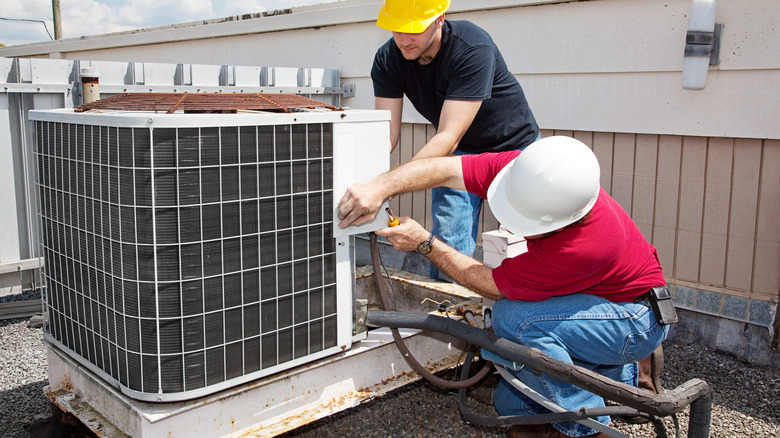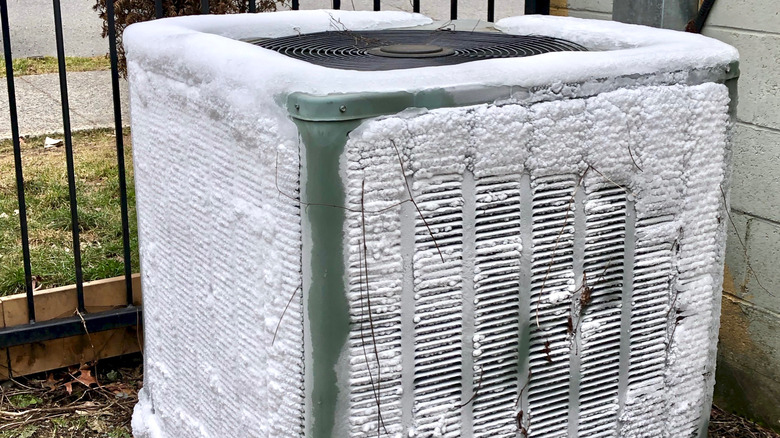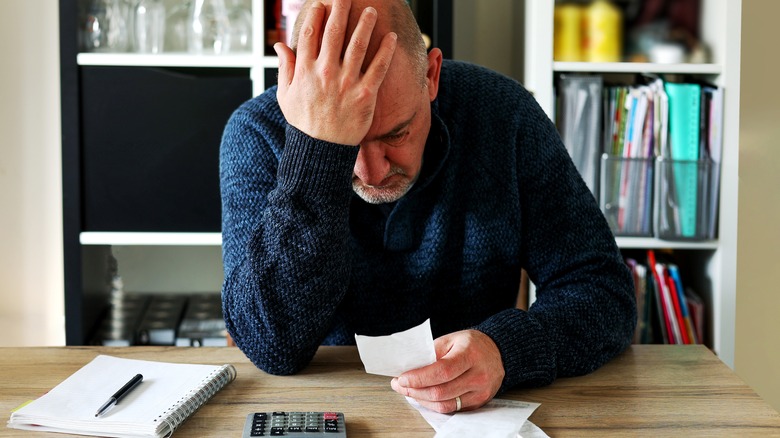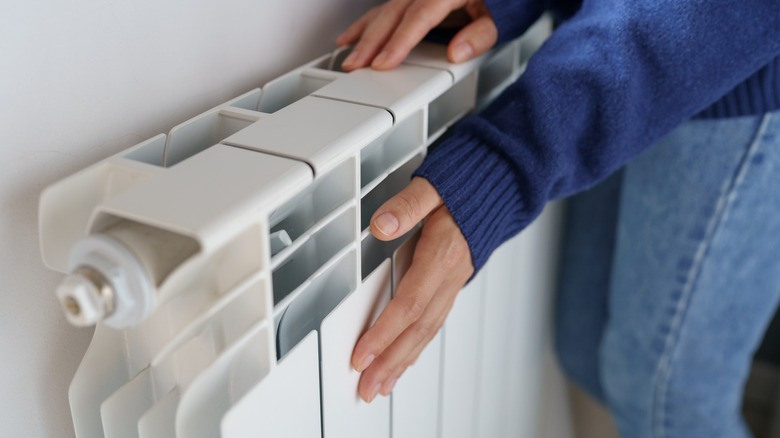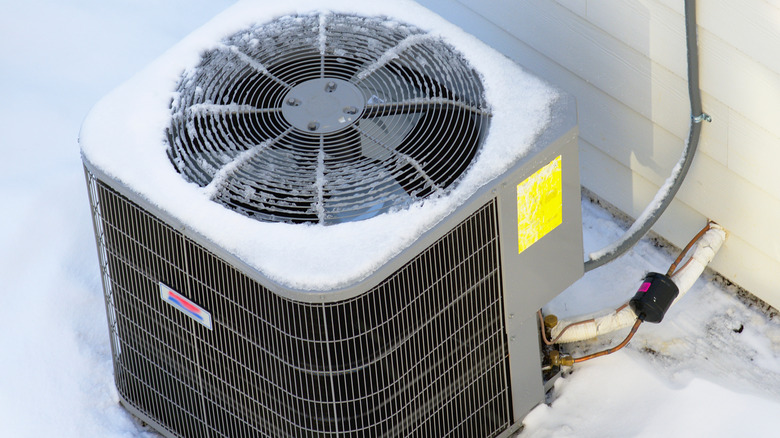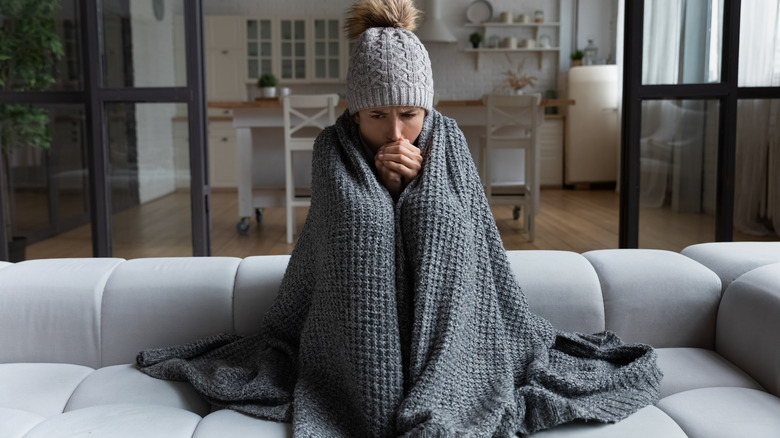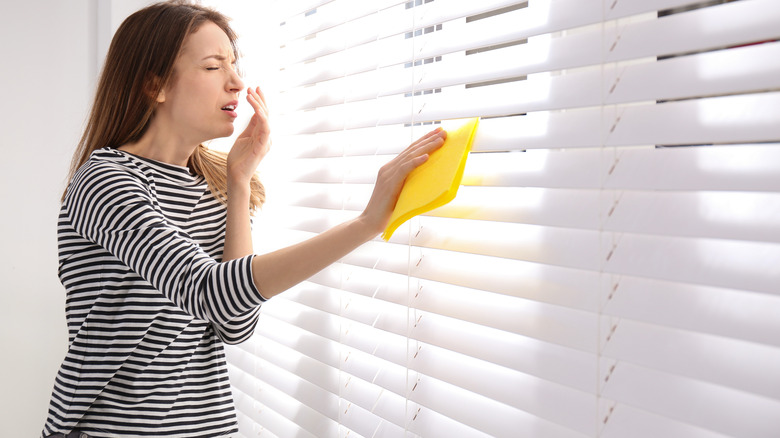Warning Signs From Your HVAC System You Shouldn't Ignore
If your home feels too hot or cold, it's common to go to your HVAC (heating, ventilation, and air conditioning) and check the settings. For many people, these systems are critical for helping keep the house remain comfortable all year round. But what happens when these systems stop working as well as they can? It's vital to understand how your HVAC system can tell you something is wrong through various signs, and not all of them are as clear as the house being too hot or cold, despite tweaking the settings.
Your system can send signals that something is wrong, like weird noises or odd smells, or your electric bill can jump for seemingly no reason. Sometimes, this is simply due to having an older system and all the quirks that come with it, but regardless, if you notice something's amiss, your HVAC will need immediate attention. Ignoring changes in your air quality, heating or cooling, or your energy bill could result in a broken system and, in turn, a very expensive repair job. Sooner or later, these minor issues lead to worn-out parts or a system that refuses to run, leaving you too hot or cold.
From hearing strange noises when it runs to noticing odors each time you switch it on, this is your HVAC's way of telling you parts are failing or dirty. Understanding why these signs are bad, like more wear and tear, higher utility bills, or premature system failure, is critical. Hopefully, learning these signals will make you feel empowered to address the small issues before they become expensive nightmares.
Unusual noises from the system
A healthy HVAC will run quietly enough that it doesn't disturb your routine. However, if the system grinds or makes noises, this could indicate that some internal parts are rubbing. Squealing, for example, could mean your belts are worn or slipping, and clunking usually means your bigger parts like fan blades are out of place or loose. If you're hearing humming or vibrating, you might have loose parts, or your motor needs to be checked. Recognizing these sounds early — be they hissing, squealing, humming, vibrating, clanking, banging, or buzzing — is essential because they're a clue your system is stressed. If you ignore them, it could lead to damage.
Having loose parts inside your HVAC can make certain components move in ways they don't come designed to, making them rattle around. Bearing failures, especially around the blower motor, can lead to grinding or squealing noises because they'll lose their lubrication and have more friction between the moving parts. If the blower assembly gets out of alignment or has wear and tear on some parts, this can cause noise too. Regular maintenance is critical because it can help stop many problems before they start. However, once you hear noises, you want to contact a certified HVAC technician and have them look at the system. They'll diagnose the issue and adjust or repair your system.
Weak airflow through the vents
If you want to improve your home's airflow, feel around the vents when it runs. You should feel a strong breeze, but weak airflow is a common problem. You'll notice less air coming from each vent, making it harder to keep the home at a comfortable temperature. If some areas of your house fluctuate between hot and cold, this is likely because of inconsistent airflow. If your system takes longer to cool or heat your home, this impacts your comfort levels and can skyrocket your utility bills because the HVAC has to work hard to reach and stay at your set temperature. Figuring out if you have weak airflow early helps you address the issue before your system has early wear and tear.
Weak airflow comes from a few issues, including clogged filters, furniture or rugs blocking vents, ductwork issues, blower fan problems, or an obstructed condenser unit on the system outside. As your air filters fill with dust and debris, they lower the airflow, making your HVAC less efficient. Checking and replacing your filters every few months can ward off this problem. Ductwork issues range from improperly sized ducts to leaks, and having them cleaned and inspected at least once or twice a year will boost the airflow. If your compressor fails, it'll reduce how well the system circulates the air because its job is to circulate refrigerant and airflow.
Unpleasant odors when it's running
Having any icky odor coming from your HVAC when it comes on is one of the biggest red flag smells you can have in your home. The odors can be anything from burning to musty, and electrical smells are common. Each suggests a different problem with your system to make it more complicated. For example, if you have a musty odor, this usually tells you there is moisture somewhere in the system that allows mold and mildew to grow out of sight. Burning smells may start if your system struggles to keep your home at the set temperature, and the smell of burning plastic should be inspected immediately, since it can mean some wire sheathing is beginning to melt and potentially lead to an electrical fire. Those smells warn you there are underlying issues that pose dangers to your home and your system, and you should address them quickly.
The root causes of unpleasant odors from your HVAC usually come from mold growing in the ductwork, wiring issues, and overheating. Mold is usually an indicator of moisture problems, and condensation builds up to give mold spores a breeding ground. Scheduling routine cleaning and inspections can help remove mold growth and prevent it from returning by removing the moisture. Worn-out bearings, clogged air filters, and mechanical failure lead to burning smells, and electrical smells come from faulty wiring or failing components. If you notice those smells, turn the system off and calling the local fire department to look at it because you could have a dangerous electrical problem — and if you smell rotten eggs, that's absolutely a red flag, as that indicates a natural gas leak.
Thermostat issues
Your HVAC system's thermostat is the part where you choose a comfortable temperature and the system uses it to cool or heat your house. But if this piece has issues, you may notice temperature fluctuations in different rooms. Another problem is that it runs for hours but doesn't seem to be adjusting the air temperature. If the display is unresponsive, blank, or flashing, this tells you that it's the actual thermostat that isn't working instead of being a system-wide problem. However, figuring out what is causing your thermostat issues is vital.
Maybe you see frayed wiring — if you notice the connections are loose or that something has come apart, this could mean that your HVAC system and thermostat have a barrier and can't communicate. It may be something as simple as dead batteries or an older thermostat in need of replacing, or it can be more involved with something failing internally that stops temperature regulation. Your HVAC unit's control board could malfunction, or the system may fail to respond, impacting your thermostat. To fix it, look at the batteries and wiring to see if you can spot obvious problems. If the issue doesn't go away after you change the batteries and check the wiring, consider upgrading your current system to a new one and calling a tech to diagnose and fix your system.
The HVAC cycles a lot
Does your HVAC system cycle a lot? Cycling is when your system turns on for a few minutes before shutting off and switches back on shortly after. If this happens, some rooms could be much warmer or cooler than others, and cycling causes a lot of wear and tear on your system. It can also increase your energy bills. This isn't normal behavior for your system, either — usual cycles are more consistent and longer, so short, repetitive cycles are something you should fix before they cause more severe issues.
Quick cycling might be happening because of dirty coils or clogged air filters. A dirty filter doesn't let air flow through it, making your system get too hot and shut down before it should. If the filter is too big or small, it stops the airflow balance, making it cycle. Checking, cleaning, or replacing your filter with the correct size can help your system run smoother. However, if you don't set your thermostat at the right settings or it breaks, this can cause cycling as well. If you check everything and your HVAC still cycles, call a technician. They'll come in and take a look at your system to figure out what's making it cycle and suggest a fix to keep your home comfortable.
Water leaks around the unit
Does your air conditioning drip water? If you see drips or puddles, this tells you something isn't right. The leaks usually show up around the unit's base, and they can be inside or outside. Leaks can cause moisture issues in your home, like floor and wall water damage or mold growth. Spotting leaks early is critical to help ward off expensive repairs. This is why you should take a few minutes every week to look at the space around your HVAC unit for leaks or moisture, especially after running it for a long time or having bad weather.
A refrigerant leak or blocked condensate drain or pipe can cause water leaks. The drain line plays a huge role in getting moisture from the system and can get clogged with mold, dust, and dirt over time, allowing water to back up and leak around your unit. Regularly cleaning the drain line can help prevent this from happening. Refrigerant issues are a bigger problem because they can reduce how well your HVAC system works. You have to find the leak's source, fix it, and refill the refrigerant to the correct levels, and you'll typically need to call a technician for this project.
Ice is forming on the coils
If a layer of frost or ice covers your outdoor unit's coils, the ice will stop the coils from transferring heat effectively. Over time, this can make your home's internal temperatures too hot or cold, depending on the season. Allowing ice to build up can lead to water damage when the ice melts, and it can damage any structures or components around it. This is a very strong warning sign that your system needs immediate attention before your problems get worse.
Ice forming on the coils usually comes from low refrigerant levels or airflow problems. A dirty air filter, blocked vents, or a malfunctioning fan can all restrict airflow, and this stops the warm air from flowing over the coils. In turn, the condensation builds up and freezes. Ensuring you clean and maintain your air filters to keep them unobstructed. Low refrigerant levels also drop the system's internal pressure, letting it get cold enough around the coils to freeze. You don't want to fix this alone, so schedule a visit with a technician. They'll look for leaks, fix any, and recharge the system.
Energy spikes affect your bills
Having a jump in your utility bills can be a nasty surprise, and it can hint that your HVAC system isn't running in top shape because it's working harder than it should have to keep your home comfortable. Seasonal temperature changes will cause you to use more or less energy. Still, a significant increase in your expenses without changing your usage habits or the weather is something to address immediately. This problem can break the bank and make your home an uncomfortable temperature. Fixing these issues can make your system run more efficiently, lower costs, and ensure proper heating and cooling.
Several HVAC problems could spike your utility bills. If your system is dirty or in need of replacement or if your ducts leak, your HVAC works harder. Leaking ducts let air escape into unoccupied spaces, making the whole unit work harder to cool or warm your home. Sealing these leaks will help address this problem and reduce your energy costs. If you have a dirty HVAC system with clogged coils or filters, this will slow down airflow and thermal exchange, causing more energy use. Setting up appointments for techs to regularly clean and look at these problem areas can ward off this issue and keep your energy bills lower.
The system doesn't start properly
When you turn your HVAC system on, does it start immediately or does it struggle? Maybe it takes a few tries to run, or it doesn't reach the temperature you set on the thermostat. You'll notice this problem very quickly if it's uncomfortable in your home and your HVAC system refuses to work. Another common problem is that it'll only run for a few minutes before switching back off without cooling or heating the space. This is an early indication that you have some type of underlying problem that, if you don't fix, could cause your system to break down.
Issues with your thermostat, failing connections, or malfunctioning capacitors can all make it hard to get your HVAC unit to start. Electrical connectors ensure the system runs smoothly, and corroded or loose wires can stop it from starting. Capacitors give the motor a jolt to start it and can wear out and lose the ability to store and release energy. A failing thermostat won't send the start command to the unit. Addressing these issues involves bringing in a technician to look at the system. They can test your connections, capacitors, and thermostats to narrow down the problem and suggest a fix.
The outdoor unit freezes in winter
If the HVAC system's outdoor unit starts to freeze during winter, this tells you something isn't working correctly internally. You may see ice building up on the coils and components, and it can be severe enough to lock the unit in ice and stop it from working well. Your HVAC unit will struggle to keep your home at whatever temperature you set. Also, ice formation can cause damage by bending or breaking parts that it needs to run. Spotting ice formation on the outdoor unit, especially if it happens over and over during winter, needs immediate attention before it breaks something that costs hundreds to fix.
Much like if you find ice forming on your coils, restricted airflow is the main culprit behind this problem. The unit needs good airflow to run, and any restrictions or blockages can make the system less efficient, allowing it to freeze over. Regular maintenance, including cleaning leaves, dirt, debris, or snow buildup from inside and around the HVAC system, allows air to circulate better. Also, your system can freeze if you have refrigerant leaks or incorrect levels. The refrigerant absorbs and releases heat, and not having the correct levels stops your system from working correctly. You'll need an HVAC technician to check these levels and top it off, and scheduling maintenance appointments once or twice a year can help spot issues early.
High indoor humidity levels
If your house is humid with the HVAC system running, something prevents it from pulling moisture from the air. If the air feels clammy or you notice condensation collecting on any cold surfaces or your windows, this tells you the humidity levels are far too high. High humidity is very uncomfortable and can cause mold and dust mite populations to explode, making allergies worse. High humidity can also cause damage to your home's structure and furnishings by allowing mold and mildew growth. You want to take care of high humidity levels quickly to reduce how much damage they have time to do and keep your home as comfortable as possible.
Several issues could make your HVAC system unable to pull moisture from the air. A malfunctioning dehumidifier component is a common problem as this helps with regular moisture levels. Letting dust and debris accumulate can reduce airflow and the efficiency of your system's moisture removal, worsening your humidity problems. If your system is too small for your home, it won't be able to manage the humidity and will struggle to keep up with your demands. You'll want a professional tech to come in and inspect and clean your system to keep it in top shape. They may fix or replace the dehumidifier component, clean the filters, or help you upgrade to a larger system.
Hot and cold spots indoors
Finding hot or cold spots in different rooms indicates that your HVAC system struggles to evenly distribute air. This can make it uncomfortable inside, and some rooms will be too warm while others can be cold, no matter what you set your thermostat to. These temperature fluctuations are very noticeable when you go from room to room. The uneven heating and cooling patterns make your system work much harder when it tries to make each room the same temperature. This causes early wear and tear and can increase your energy bills.
Temperature fluctuations in your home can come from a few issues, including inadequate insulation, blocked vents, or a system that isn't big enough for your space. Blocked vents stop air from flowing properly into some rooms, creating hot spots during summer and cold spots in winter. Curtains, furniture, and rugs can all block the vents, and ensuring they're clear lets the HVAC unit distribute air better. Poor insulation can cause temperature inconsistencies because heat will escape during the winter and get into the house during summer. Checking and improving your home's insulation in the attics, walls, or around the windows and doors can help keep the temperatures steady. Finally, your HVAC will struggle if it's not the proper size for your home.
Persistent allergies or respiratory issues
If you have ongoing allergies or respiratory issues, this is a vital clue that indoor air quality isn't the best. You may find yourself sneezing or coughing, being congested, or having a hard time breathing when you're inside. If the issues worsen after you spend a few hours inside, this tells you that the air your HVAC system circulates throughout your home is the problem. Addressing these problems quickly helps ensure that your home stays safe and comfortable.
These respiratory and allergen problems can come from not cleaning and maintaining your system regularly. Dust bunnies, pollen, and pet dander can build up in your vents or air filters, and they can clog them. While it won't let a lot of air through, the air it does can get loaded with these particles, and you breathe them in. The ductwork can also have mold build up to contaminate the air more. This is why regularly changing all the air filters is essential to prevent clogs. Also, schedule professional duct cleaning to help remove any built-up debris. If you have severe problems, upgrading your system to HEPA filters or installing air purifiers can help enhance your indoor air quality so you can breathe easier.
